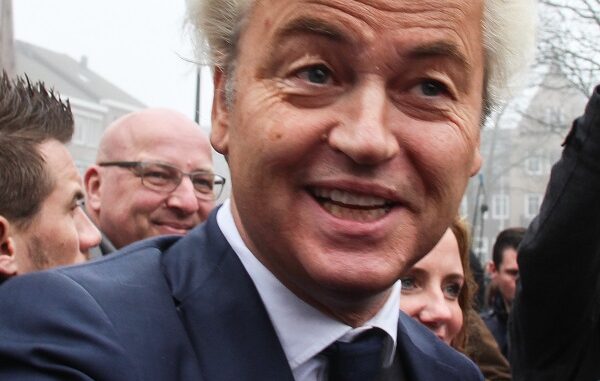
The ‘Partij Voor de Vrijheid’ (PVV) – known as the Freedom Party – won the biggest number of seats in the recent elections in the Netherlands. The PVV managed to win this as the other main parties have no solution, and never would be able to, around the key issues of housing, jobs, and services. The PVV used the immigration issue to divide working people in the Netherlands.
In interviews, PVV party leader Geert Wilders repeats that “we need to stop the influx of asylum seekers; we need the money to go to Dutch people only” etc. This has clearly created division in society. Following the PVV election gains protests took place in the main towns of the Netherlands. The protests were initially called against the Israeli state attacks on Gaza but turned into more wide-spread anger around racial discrimination and Islamophobia.
The PVV is a far-right party, but Geert Wilders toned down his overt anti-immigrant policies during the election campaign. In France we saw a similar process, when Marine Le Pen tried to make her far-right party seem more acceptable during elections. Some in the Dutch media renamed Geert Wilders, ‘Geert Milders’ (i.e. that he went from ‘wilder to milder’).
Wilders’ (PVV) initial programme included a ban on the Qur’an and wearing of Islamic headscarves in government buildings. He changed his programme during the elections saying he will rule for all Dutch people, but his programme stands so far.
The Dutch government fell over the ‘asylum seekers regulations’ back in July. The last time there was a huge swing to the far-right was back in 2002 when Pim Fortuyn stood on an anti-immigrant/asylum/Islamophobic programme. He was assassinated during that election campaign. At that time, we condemned the ideas that Fortuyn stood for, but at the same time and as always, we are totally against the use of ‘individual terrorism’, which only divide and weaken the working class even more and could strengthen their ideas. The PVV capitalised on this, turning down their main anti-Islam propaganda and learning from French elections.
Since Wilders’ election win, their PVV figure, Van Strien, was chosen to try to pull together a new cabinet. But he had to step down after having been accused of fraud from some years ago, when he is accused of transferring funds (allegedly up to £2 million to an investment firm in his wife’s name).
Now an ex PVDA (Partij Van De Arbeid – a social democratic party) minister has been named as the main negotiator to form a government cabinet but he has not confirmed yet. He has said the Dutch people, “have spoken” and “it’s quite healthy that there is a political change of guard, now and then”.
Working class response
The organised working class needs its own response to the election outcome. There were national rail strikes in the Netherlands in March, this year, but the main trade unions have been silent and impassive since the PVV victory, including one of the FNV (Federatie Nederlandse Vakbeweging (Federation of Dutch Trade Unions). Their main statement was along the lines of acknowledging people feel unheard due to uncertainty over the cost-of-living crisis and housing crisis. The FNV stated that it stands for unity and that the election result must not lead to division in Dutch society. However, no fighting programme was put forward on how to fight against the cost-of-living crisis.
The unions need to be combative on a class programme. Allied with a party of the working class that has mass support and a socialist programme taking on the bosses and their system and for a transformation of living standards, the ground could be cut from under the feet of the PVV and the rest of the far right and the parties of the Dutch ruling class.
